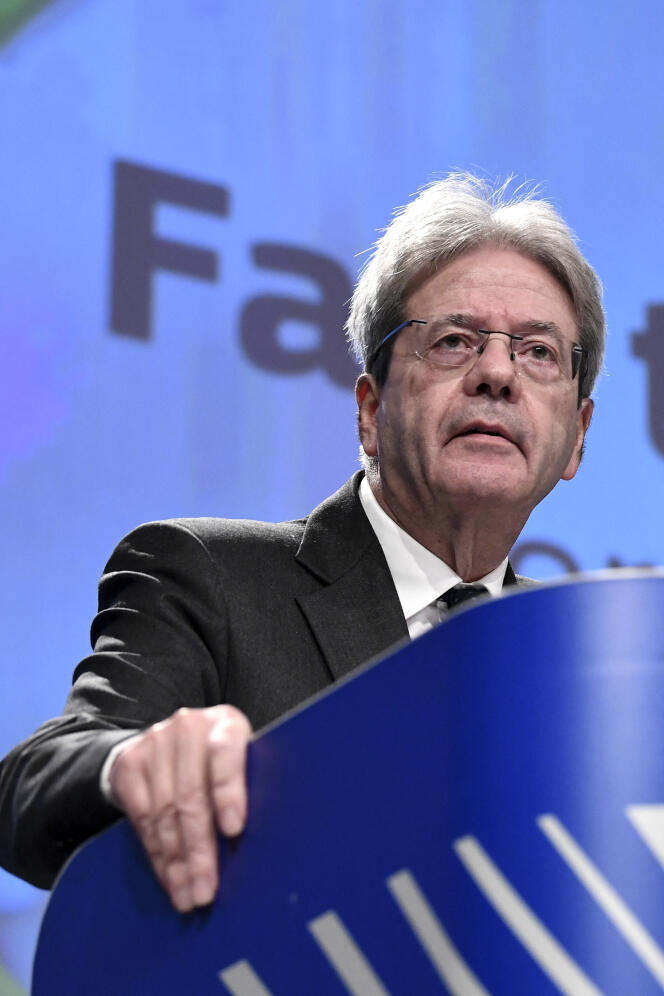 European Commissioner for the Economy Paolo Gentiloni, 22 December 2021 in Brussels. JOHN TEES / AFP
European Commissioner for the Economy Paolo Gentiloni, 22 December 2021 in Brussels. JOHN TEES / AFP
While Moscow’s war in Ukraine creates many uncertainties for the European Union (EU), the twenty-seven heads of state and government are scheduled to meet on Thursday, March 10 and Friday, March 11 at Versailles. In an interview with Le Monde, Economic Commissioner Paolo Gentiloni returns to the challenges that public construction is now facing, two years after the onset of Covid-19. Former Italian Prime Minister believes that European history is experiencing a new “turning point”. He urges Europeans to use new “common instruments” to avert “the risk of stagflation that we face.”
Read also Article reserved for our subscribers The European economy is feeling better, but shadows are looming
In Versailles, the heads of European states and governments will discuss the sanctions adopted against Russia. Do you think they were effective?
For the most part, Europeans responded to military aggression with economic and political weapons. The sanctions we have imposed have already seriously weakened the Russian economy. But on their own, they will not stop Putin and his war.
Should we go further? And, in particular, no more imports of Russian energy?
Nothing is out of the question. But we must consider the impact that new sanctions could have on our economy. We must also work to implement the sanctions already in place to prevent targeted oligarchs with assets in several European countries from eluding them.
Volodymyr Zelensky, among others, accuses the EU of financing Putin’s war by buying gas and oil from him. What will you answer him?
We have adopted tough sanctions that have weakened the Russian economy and the means that Putin has to finance this war. We have to be honest: even if we pass new sanctions on energy, it is not certain that this will stop them in the short term. There are many ways to finance military operations, not just gas, oil and coal export revenues. And this war will continue, regardless of the economic sanctions we adopt.
Are you afraid that the Russian president will go beyond the borders of Ukraine and attack the EU country?
No. NATO sent clear signals. We are strengthening our military presence at the NATO level on all borders that may be threatened. I do not think that Putin will take such a risk.
Read also Article reserved for our subscribers War in Ukraine: EU announces ‘massive’ sanctions against Russia, but disappoints some member states
On Tuesday, March 8, the European Commission presented its EU strategy to reduce its dependence on Russian energy by two-thirds by the end of the year. Is this goal credible?
You have 61.92% of this article left to read. Further only for subscribers.
